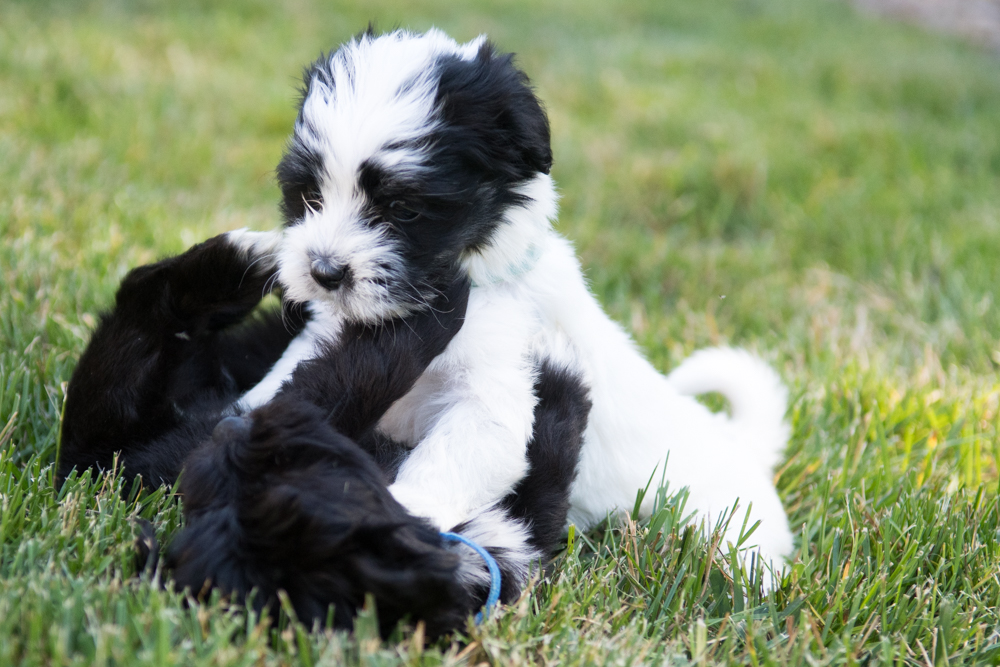A well-socialized and secure puppy is a happy puppy. This means helping him early on to feel that the world is a fun and safe place to be—whether encountering other dogs, children, or strangers on the street. Ideally, your pup will be content in any setting, and even when you’re not home. Give him plenty of stimulation, socialization, and encouragement or you will risk problems such as aggressive or fearful behavior, excessive barking, and separation anxiety.
Take your puppy to a dog park regularly, but don’t overstimulate him. If he doesn't enjoy the experience, though, don’t force him into it. Keep his social periods brief at first, so as not to overdo it. (Don’t allow socialization before he is fully immunized.) And always pick up after your dog, wherever you go.
To discourage separation anxiety—which often results in puppies engaging in destructive behavior—supply your pup with chew toys to keep him appropriately occupied in your absence. You’ll want to make sure that both his teeth and mind are busy.
Sometimes dogs need to work off steam in ways you don’t have time to provide. Consider signing your dog up at a dog daycare center, if there is one in the neighborhood, or hire a dog walker to take your pup on an extended walk to burn off energy.
If your puppy meets another dog on the street or at the dog park who seems aggressive, calmly lead your dog away. Never try to force an interaction that could turn dangerous.
At the earliest opportunity, take your puppy for a brief ride in the car. Stop by the vet’s office, just for a visit and a treat, so he considers it a positive place to spend time
Because puppies sometimes see kids as equals, they may react to them in unpredictable ways. Put your pup into a “sit” or “down” when meeting toddlers or babies. He should never be permitted to jump on them.

